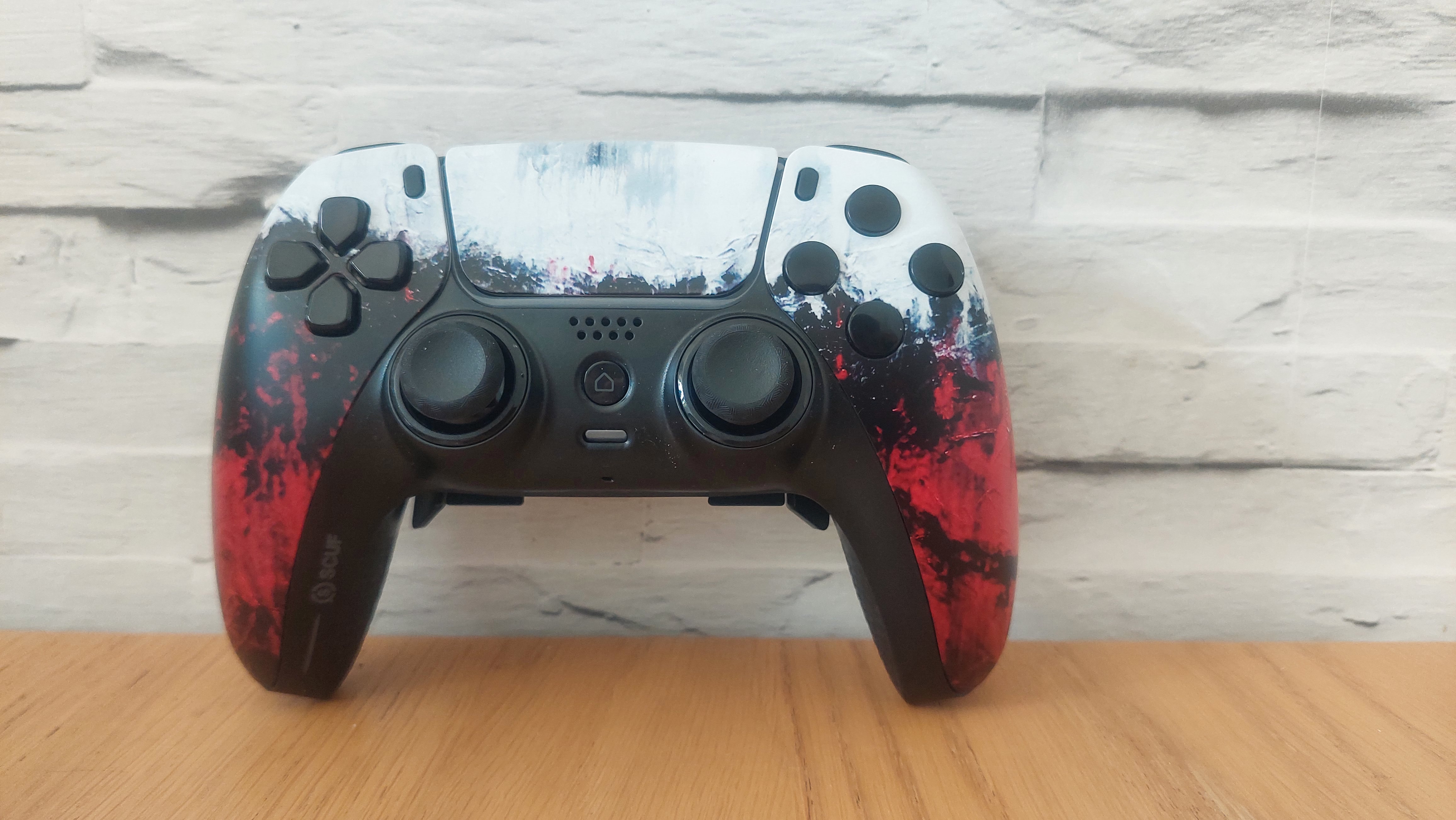GamesRadar+ Verdict
The Scuf Reflex PS5 controller can be customised however you like it and makes for a premium DualSense alternative - especially for those looking for more options. However, for many regular PS5 and PC players, it doesn't offer quite enough to warrant its high price tag.
Pros
- +
Excellent customisable back buttons
- +
Superb grip
- +
Lots of design options
Cons
- -
Probably not (around) $150 better than the DualSense...
Why you can trust GamesRadar+
It's finally happened: SCUF's new Reflex line of controllers marks the first big addition to the third-party PS5 controller option list that we've all been waiting for. The SCUF Reflex controllers look strikingly similar to the official DualSense pad, but claim to offer the traditional extras that SCUF gamepads do: bonus buttons that are customisable, a DIY-design process to get the right controller for you, and some other enhancements aimed to bring the pad up to competitive gaming levels. Oh, and a price tag north of the $200/£200 mark.
First, though, you have to decide what kind of SCUF Reflex you want. There are three broad 'types': the standard Reflex, the Reflex Pro, and the Reflex FPS. All offer slightly different variations upon a theme, and you can pick your way through each step customising the pad on the official site (though the three main core pads will come to retailers at some point, we're sure). While ours was custom-designed - we had a bit of fun with the design, don't @ me - it's based on the Reflex Pro model. But is it the next level of PS5 pad, and also one of the best PC controllers going? Maybe - for some folks, anyway.
Design
As I've mentioned, the actual aesthetic design can be chosen if you're building you're own - though the grey schemes in the marketing do look smart too - so you can really go to town and personalise from the off.
But the structure and the physical form of the SCUF Reflex are basically identical to the PS5 DualSense controller. It really does look like SCUF has had access to the official pad's blueprint and then been able to work directly from that, adding the extras on top.
Where the Reflex deviates from the DualSense form and design - mainly - is on the rear where the extra buttons or paddles are positioned. There are four of them, carefully placed and together with a profile button add a bit of extra heft and weight to the pad and fit very neatly and appropriately. Even for my slightly weird hands, the placement is perfect.
Otherwise, the sticks, all the buttons, and the D-Pad are all where they 'should' be and it really does feel like and have the design of, a DualSense. Simple.
Features
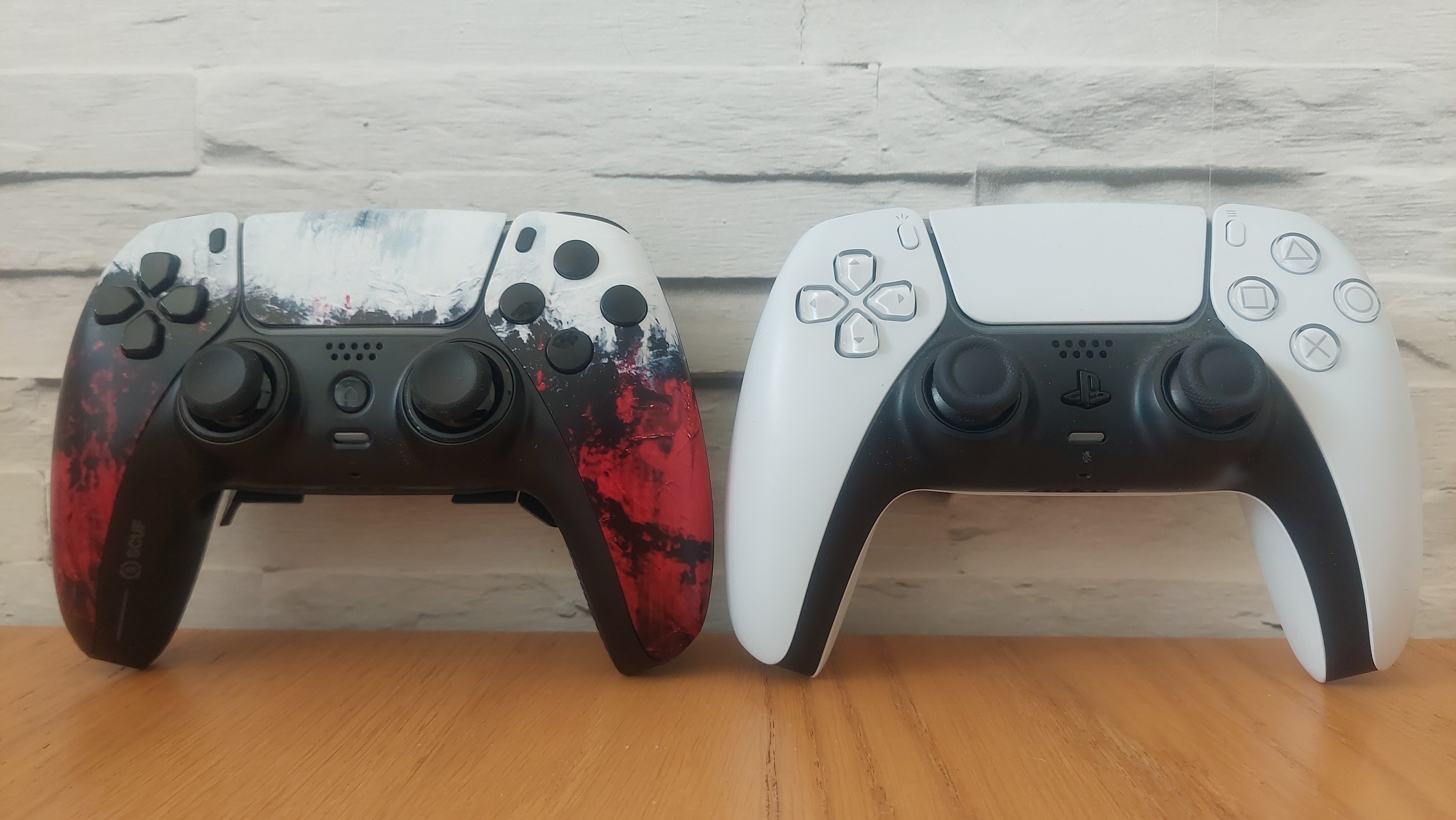
From the off, as mentioned, the buttons are all in the same position as the DualSense, and largely feel the same - though you can change a few things like the shape and form of the sticks in particular if you're looking for some extra edges. The sticks, face buttons, and shoulder buttons all feel solid and as expected, with no real difference from the DualSense.
On the back, however, we get to Scuf's famous back paddles. Or buttons. Or padtons. Well, the reality is that these buttons are somewhere between paddles and 'click of a mouse' buttons. This makes for an actuation that is both satisfying and also not overly easy to accidentally press. These are also well placed, conforming to the contours and form of the DualSense shape and fit neatly under the pad. Those with normal-sized (and up) hands will have these almost literally at their fingertips. Above these sits the profile button too, allowing management of the paddles between three setups.
The triggers can be changed to hairline ones that are excellent for FPS play with a near-instant actuation, but our model came with the standard stock ones - much like the other face buttons and D-Pad, these just feel normal and familiar.
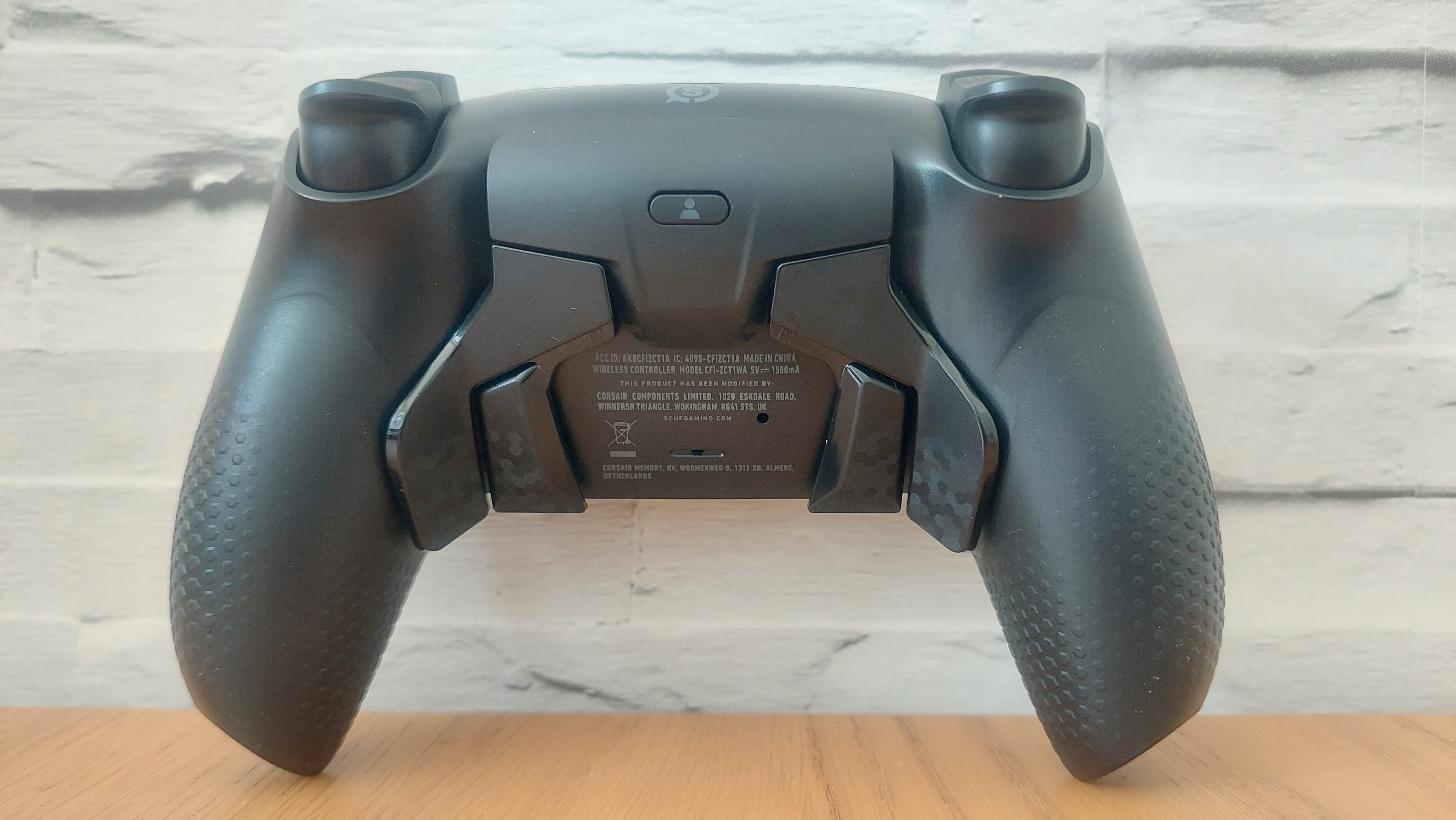
A feature that really should be considered and that stands out for me, however, is the grip texture that can be applied in the customisation process - this is excellent, it needs to be said. On each wing, this really made the controller feel like it would never slip out of my hands and offers way more comfort and, well, grip than the regular DualSense. It's almost a shame this feature alone is locked into such a pricey pad, as I would add it to my regular DualSense pads in a heartbeat.
A somewhat missed opportunity in the features department here is the lack of software. This is unfortunate as almost all of the customisable competitors, like the brilliant Thrustmaster eSwap X Pro, have a suite where you can fully overhaul the pad to your preference. Not here though - the Reflex controller must be manually changed.
Performance
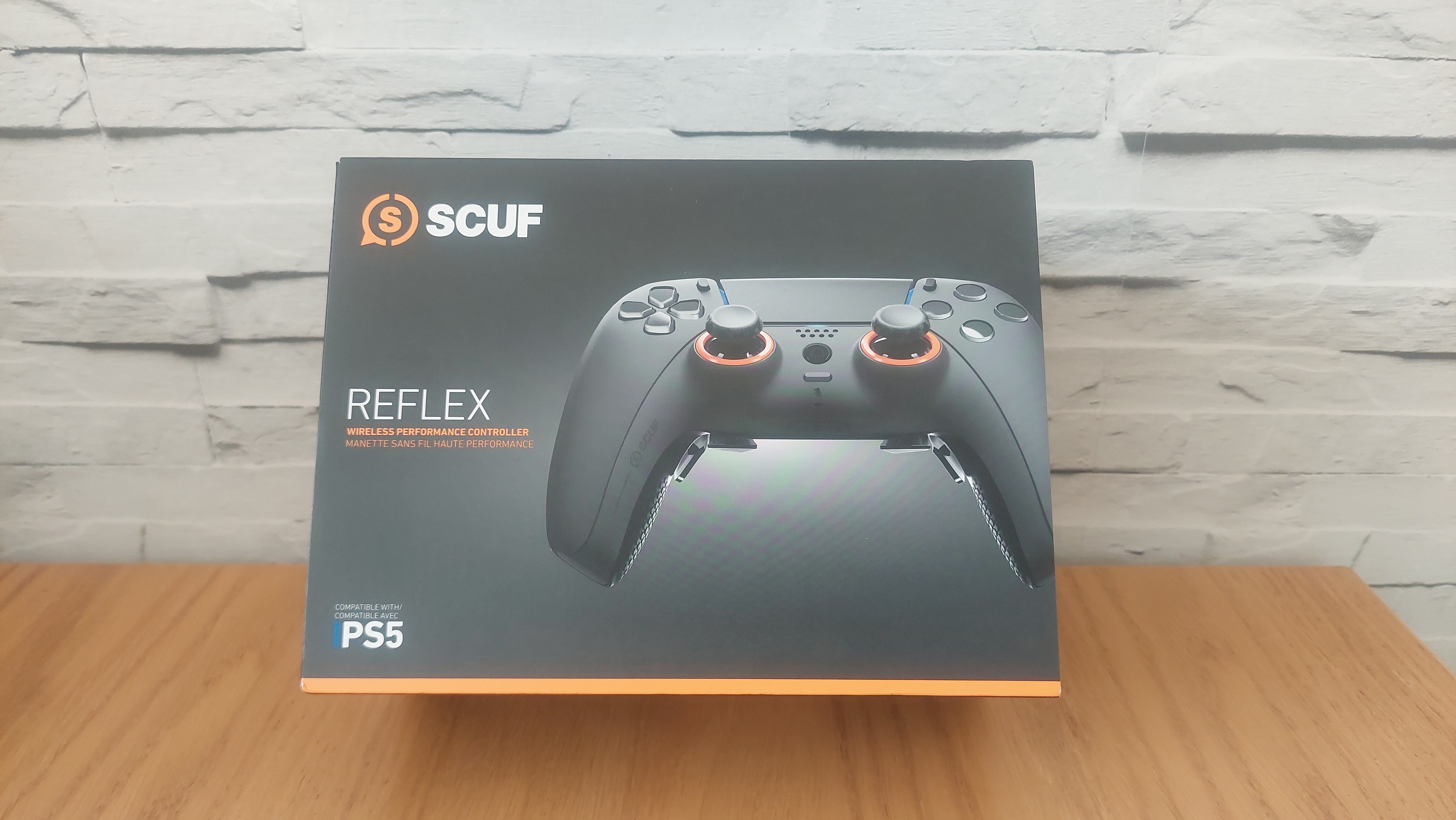
The Scuf Reflex Pro controller plays almost identically to the DualSense. As a result, to just pick up and use it for a quick session felt exactly the same as any other DualSense pad, and it does share all the best bits - the adaptive triggers, the haptics, the rumble, the solid weight and build, and so on.
Now, where it can come alive is in single-player games that require any extra advantage like Elden Ring, where you can really utilise the paddles to instantaneously mount a glorious counterattack or flee at just the right time, or ensure you can run, jump, and combine other actions altogether, almost all at once. However, if you're on PC and playing Elden Ring, the Razer Wolverine V2 or the Turtle Beach Recon Controller will do that same job for a fraction of the price of the Reflex - albeit with an asymmetrical design.
The other place where, predictably, the Reflex will offer something else is in the online multiplayer and competitive field. This scene has long been one that has been the home of many a customisable controller player, and it will shine again here in games like Apex Legends or Warzone where folks have their own preferences and button layouts with jump or reload on the rear, for example.
Otherwise, this is a DualSense in every way and for everyday players looking for a neat pad to play Assassin's Creed, Stray, or Sniper Elite 5 with, then this will be a bit too much and also not quite right.
Overall - should you buy it?
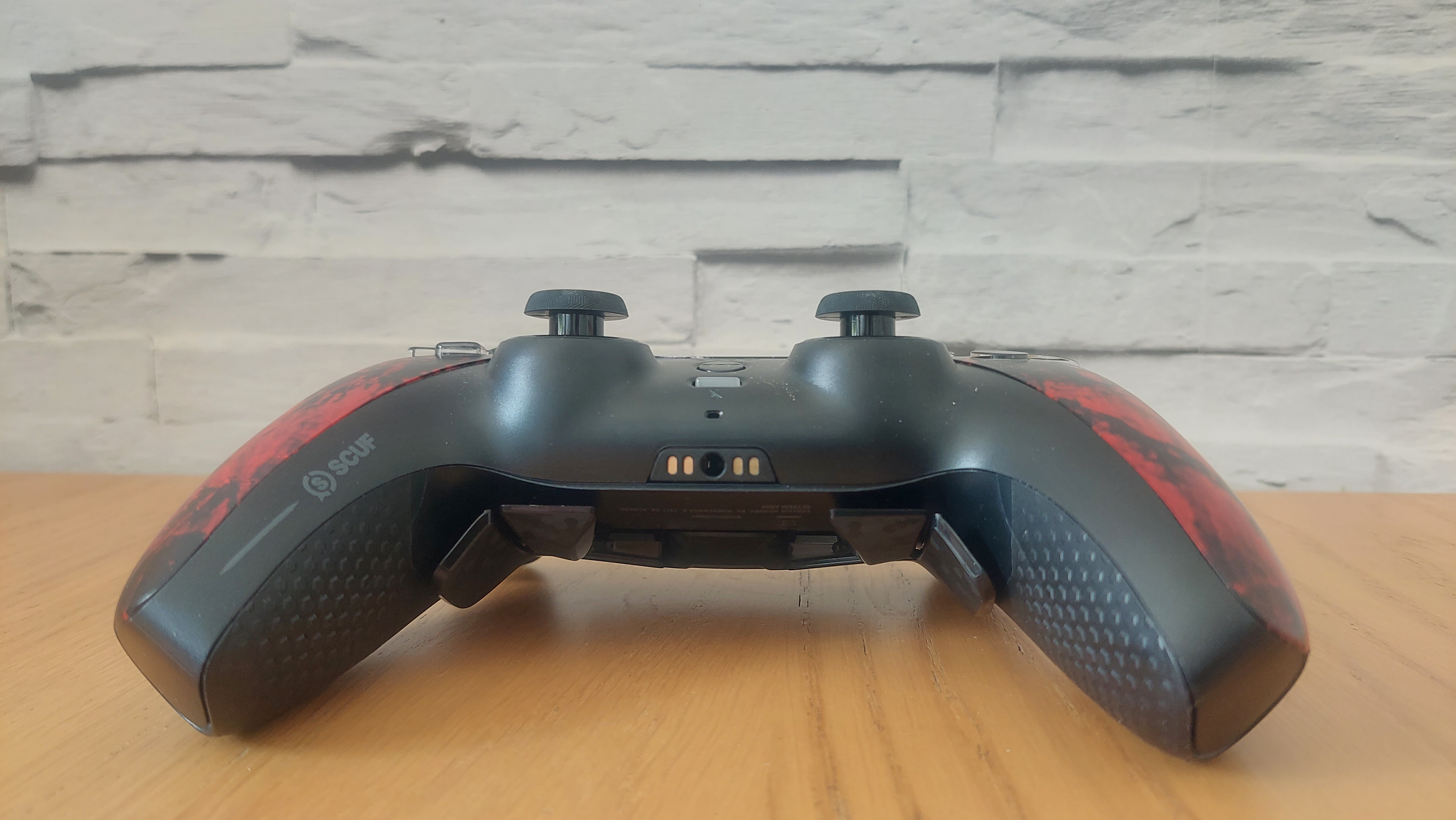
Throughout my time with the Scuf Reflex Pro it has felt rather like I'm reviewing a DualSense. This sometimes has made it hard to see the pad as its own thing. On one hand, that's great, as it'll feel very familiar to those who own and love the DualSense who are looking for a bit more, but on the other, it's a bit underwhelming - there's nothing truly revolutionary here, and certainly nothing to sway a mass of the player base.
Is it worth the price of three DualSenses? For most folks, no, and it would just be a very expensive DualSense alternative that doesn't offer much. But then, much like other Scuf controllers such as the Scuf Instinct Pro for Xbox, this just isn't aimed at most folks, and until other players or models enter the market, the Reflex series from Scuf really does remain a quality option for those looking for more customisation and possibilities from their PS5 and PC controller - for a big price.
How we tested the SCUF Reflex controller
The SCUF Reflex controller became my go-to gaming pad for my PS5 (my main platform) and for PC play, where I also tested it out thoroughly, for several weeks.
I used it for all my games and gaming, regardless of genre or how I was playing - be it co-op with my friends in Strange Brigade, traversing near-future London in Watch Dogs Legion, or messing around in our testing games on PC like Red Dead Redemption 2, The Division 2, and Shadow of the Tomb Raider.
Tested on PS5, and with a Razer Blade 15 laptop supplied by Razer and with an Acer Predator X38 monitor from Acer.
Remember to browse other specialist PS5 gear like the best TV for PS5, best PS5 monitor, and best PS5 headsets to fully kit out your setup.
Rob is the Deputy Editor of sister site, TechRadar Gaming, and has been in the games and tech industry for years. Prior to a recent stint as Gaming Editor at WePC, Rob was the Commissioning Editor for Hardware at GamesRadar+, and was on the hardware team for more than four years, since its inception in late 2018. He is also a writer on games and has had work published over the last six years or so at the likes of Eurogamer, RPS, PCGN, and more. He is also a qualified landscape and garden designer, so does that in his spare time, while he is also an expert on the virtual landscapes and environments of games and loves to write about them too, including in an upcoming book on the topic!
